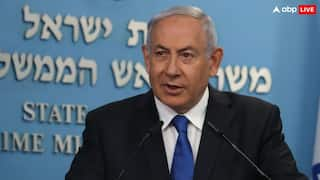Twitter's Crisis Misinformation Policy Is Here To Stop Amplification Of False Tweets During Crisis: Details
Continuing its fight against the spread of misinformation, micro-blogging site Twitter has announced its crisis misinformation policy.

New Delhi: Continuing its fight against the spread of misinformation, micro-blogging site Twitter has announced its crisis misinformation policy -- a global policy that will guide its efforts to elevate credible, authoritative information and will help ensure that the company doesn't amplify or recommend misinformation during crisis such as wars or health emergencies.
People around the world use Twitter to find reliable information in real-time. According to the company, in periods of crisis -- such as situations of armed conflict, public health emergencies, and large-scale natural disasters -- access to credible, authoritative information and resources is all the more critical. To reduce potential harm, as soon as Twitter gets evidence that a claim may be misleading, it won’t amplify or recommend content that is covered by this policy across Twitter -- including in the Home timeline, Search, and Explore.
"Alongside our existing work to make reliable information more accessible during crisis events, this new approach will help to slow the spread by us of the most visible, misleading content, particularly that which could lead to severe harms," Yoel Roth, Head of Safety & Integrity and Twitter, wrote in a blog post.
Developing Twitter's crisis misinformation policy
Teams at the micro-blogging site have worked to develop a crisis misinformation framework since 2021, drawing on key input from global experts and human rights organisations. "For the purposes of this policy, we define crises as situations in which there is a widespread threat to life, physical safety, health, or basic subsistence. This definition is consistent with the United Nations’ definition of a humanitarian crisis and other humanitarian assessments," Roth added.
The company requires verification from multiple credible, publicly available sources, including evidence from conflict monitoring groups, humanitarian organisations, open-source investigators, journalists, and more to determine whether claims are misleading.
"Down the line, as we expand our approach, we will enforce around other emergent global crises, informed by the United Nations Inter-Agency Standing Committee (IASC)’s emergency response framework, and other global humanitarian frameworks," Roth noted.
However, during moments of crisis, establishing whether something is true or false can be challenging. Conversations move quickly during periods of crisis, and content from accounts with wide reach is most likely to rack up views and engagement. "In addition, we will prioritise adding warning notices to highly visible Tweets and Tweets from high profile accounts, such as state-affiliated media accounts, verified, official government accounts," Roth explained.






































